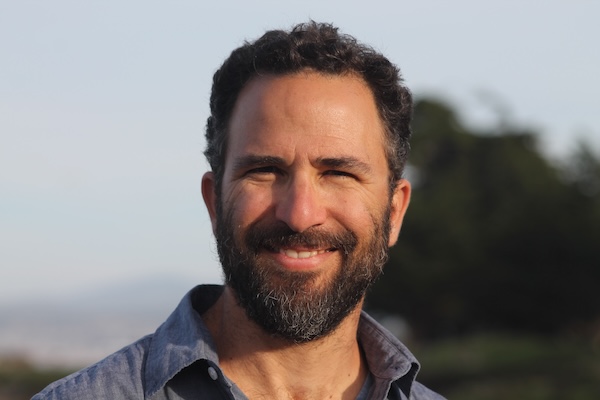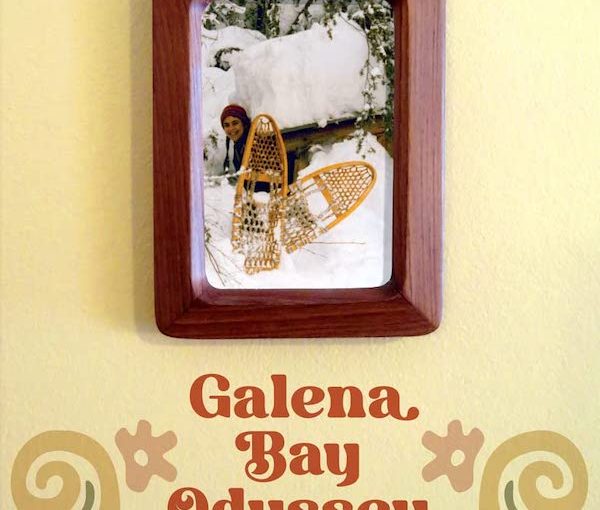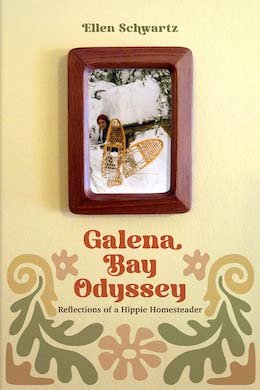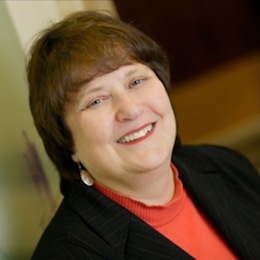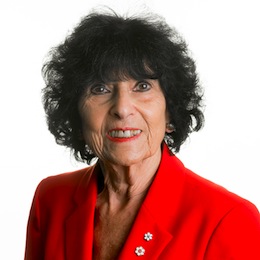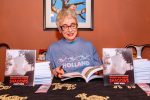Rabbi Arik Labowitz (photo from Or Shalom)
Rabbi Arik Labowitz will step forward as Or Shalom’s rabbi when Rabbi Hannah Dresner retires.
Rabbi Arik is presently serving as the congregation’s half-time assistant rabbi and has signed a two-year contract as full-time rabbi, beginning Nov. 1. Rabbi Hannah’s partnership with Rabbi Arik will facilitate a smooth transition of leadership as Or Shalom navigates renovating their building while maintaining the congregation’s vibrancy.
The synagogue has already enjoyed Rabbi Arik’s breadth of Torah learning, the depth of his davening and meditative offerings, his musicality, his sensitive pastoral manner, his delight in children, his commitment to intergenerational programming and the new enrichment he brings, focusing on the spirituality of the congregation’s Cascadian outdoors.
As Jewish Renewal’s oldest synagogue, it is meaningful that Rabbi Arik is a second-generation Renewal rabbi and that his presence ties the congregation back to the rabbis who raised and schooled him, including Reb Zalman Schachter-Shalomi and Reb Shlomo Carlebach. Born into a legacy of Jewish Renewal, with parents Rabbi Phil Labowitz and the late Rabbi Shoni Labowitz z”l, Arik’s formative years were enriched by learning from Reb Zalman and his early students during weekend retreats at his family’s South Florida home.
Eager to delve deeper into his spiritual path, Arik journeyed to Israel to immerse himself in traditional life and studies, spending transformative years at Yeshivat Machon Meir and Darche Noam/Shapells in Jerusalem from 1995 to 1997. Returning to North America, he continued his studies at the Graduate Theological Union in Berkeley, California, embodying a commitment to a diverse and enriched understanding of Jewish tradition.
Over the past two decades, Rabbi Arik has played pivotal roles in various Jewish leadership capacities. From 2007 to 2021, he served as the spiritual leader of Congregation Eitz Or, and as a regular visiting leader for several communities along the West Coast.
Rabbi Arik, along with his wife, Aliza, and their two sons, Judah and Noah, recently relocated to Vancouver, drawn by the desire to be closer to family as well as the beauty of the water and mountains.
* * *
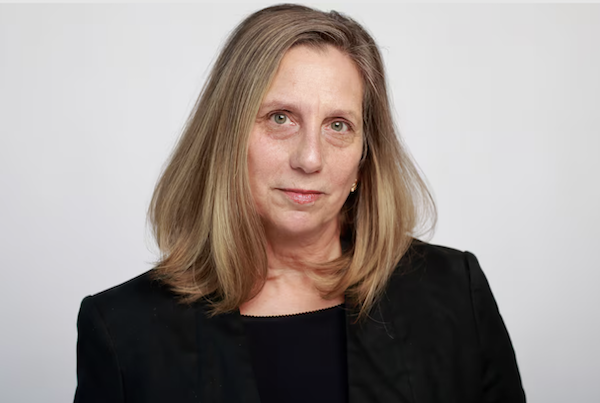
Arts and culture critic and commentator Marsha Lederman is the winner of this year’s Max Wyman Award for Critical Writing.
The annual award celebrates critical commentary on the visual, performing and literary arts in the province of British Columbia. The winner receives a prize of $5,000 and a gold and emerald pin designed by Vancouver artist Robert Chaplin. A mentee, named by the laureate, receives a $1,000 prize. This year’s mentee is Ming Wong, an emerging writer and illustrator.
The award was established in 2017 by philanthropist Yosef Wosk to honour the career and lifetime contributions of the Vancouver author, arts critic and commentator Max Wyman. It recognizes writers who have amassed a significant body of work. Eligible subjects of criticism include the visual arts, architecture and design, theatre, literature, dance, music, film and television, as well as more general cultural commentary.
Lederman is an award-winning journalist and author. She has been with the Globe and Mail since 2007. For 15 years, she served as its Western arts correspondent, covering visual art, theatre, music, dance, books and publishing, film and architecture. In 2022, she became a full-time columnist for the newspaper, but continues to write about arts and culture. Her memoir Kiss the Red Stairs: The Holocaust, Once Removed, was published by McClelland & Stewart in 2022. It was a national bestseller and last year won the Western Canada Jewish Book Award for biography or memoir. She has won several journalism awards, including the 2019 National Newspaper Award for Arts and Entertainment, and the inaugural Webster Award for Arts and Culture Reporting in 2023. Before joining the Globe, Lederman held a variety of positions with CBC Radio, including national arts reporter. Born and raised in Toronto, she has lived in East Vancouver since 2007.
“Marsha Lederman’s writings over the years have provided a consistent and powerful demonstration of what she has called ‘good journalism’s power to inform, guide and potentially change the world’ – precisely in line with the aims of this award, which seeks to honour informed and compelling writing that stimulates critical thinking and demonstrates the value of creative commentary in our understanding of the world around us,” said Wosk. “I am delighted that she has been chosen as this year’s laureate.”
The jury citation reads: “Marsha Lederman has made significant contributions to the field of journalism and literature through her extensive writings on social issues seen through the lens of arts and culture and social justice. The jury is unanimous in its appreciation of her ability to engage and inspire her readers, through lively and accessible writing that opens eyes and minds to fresh insights and creative thinking.”
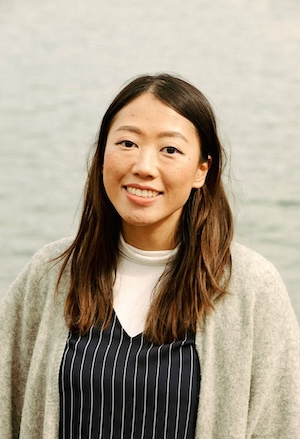
Wong is an art director, graphic designer and journalist at the Globe and Mail, where she produces and edits visually-driven stories for print, online, social and beyond. Her design work has been recognized by the Society of News Design and the Digital Publishing Awards. Born in Hong Kong and raised in Burnaby, she currently lives in Vancouver.
“I began working with Ming Wong as a mentor in 2022,” said Lederman. “She was particularly interested in writing about pop culture. And she has been fantastic, showing enormous creativity, drive and dedication as a writer. She is curious and smart, and writes interesting, intelligent and highly readable pieces about popular culture from her millennial perch. I can’t wait to read more from Ming over the years.”
Previous winners of the Wyman award are critic and educator Jerry Wasserman; Dorothy Woodend, arts editor of the Tyee; freelance art critic Robin Laurence; and author, critic and former University of British Columbia gallery director Scott Watson. Previous mentee award winners are Paloma Pacheco and Angie Rico.
* * *
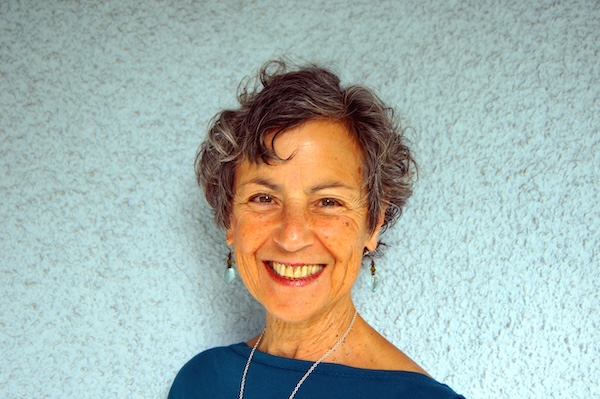
Galena Bay Odyssey: Reflections of a Hippie Homesteader by Ellen Schwartz (Heritage House, 2023) has received a 2024 Historical Writing Award, presented by the British Columbia Historical Federation.
On May 4, the recipients were announced and acknowledged at the BC Historical Federation annual conference and awards dinner, where author Ellen Schwartz was in attendance to receive the honour.
 Galena Bay Odyssey traces Ellen’s journey from a born-and-raised Jewish urbanite from New York who was terrified of the woods to a self-determined homesteader living on a communal farm in the Kootenays. Throughout the memoir, Ellen reflects on what her homesteader experience taught her about living more fully, honestly and ecologically. (For a review, see jewishindependent.ca/a-hippie-homesteader-in-b-c.)
Galena Bay Odyssey traces Ellen’s journey from a born-and-raised Jewish urbanite from New York who was terrified of the woods to a self-determined homesteader living on a communal farm in the Kootenays. Throughout the memoir, Ellen reflects on what her homesteader experience taught her about living more fully, honestly and ecologically. (For a review, see jewishindependent.ca/a-hippie-homesteader-in-b-c.)
Schwartz is an award-winning author of more than 18 books for children. In addition to writing books, she works as a corporate writer and editor and as a freelance magazine writer. She and her husband live in Burnaby.
* * *
The Arts Club Theatre Company has commissioned six new scripts as part of their Silver Commissions program, celebrating the company’s 60th anniversary. Founded in 2006 to commemorate the 25th anniversary of the first world première of a Canadian play at the Arts Club, the Silver Commissions program is designed to foster the creation of new Canadian scripts. Through this initiative, the Arts Club has commissioned, developed and produced 20 new plays.
The 2024/25 Silver Commissions includes Beware the Glunkus: A Christmas Musical, by Ben Elliott and Jewish community member Anton Lipovetsky. The other commissions are An Enemy of the People by Colleen Murphy, Fan Tan Alley by Jovanni Sy, Florida Social by Bronwyn Carradine, Little Darling by Amy Lee Lavoie and Omari Newton, and Murder on the Pacific Spirit Express by Frances Koncan.
The story of the Glunkus is a legend that Joe’s dad used to tell him as a kid about a mischievous gnome that hates Christmas. Once a heartfelt artist, Joe now exclusively makes corporate jingles and generic reality TV soundtracks. But when Joe’s niece discovers his unproduced musical in a drawer and stages a reading with his neighbours in the living room, Joe’s distaste for the holiday spirit goes big – and he starts to transform into a Glunkus (complete with pointy ears and an elf-like voice). With the help of Bella and his dad, he must open his heart before it’s too late!
Elliott is an award-winning multidisciplinary artist living in Vancouver. When not working in the theatre, he writes, records and performs his own music, animates his own music videos and composes for film, TV and radio.
Lipovetsky is a songwriter, actor, musical director, sound designer and educator based in Vancouver. He has performed on stages nationwide and his original musicals have been shortlisted three times for a Playwrights Guild of Canada Tom Hendry Award.
Together, Elliott and Lipovetsky have written the musicals The Park (with Hannah Johnson) and The Best Laid Plans (with Vern Thiessen).

